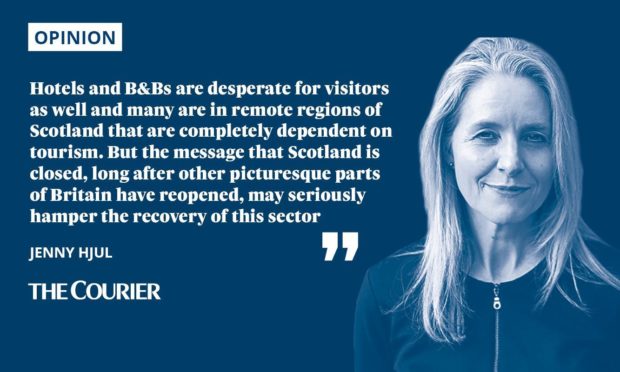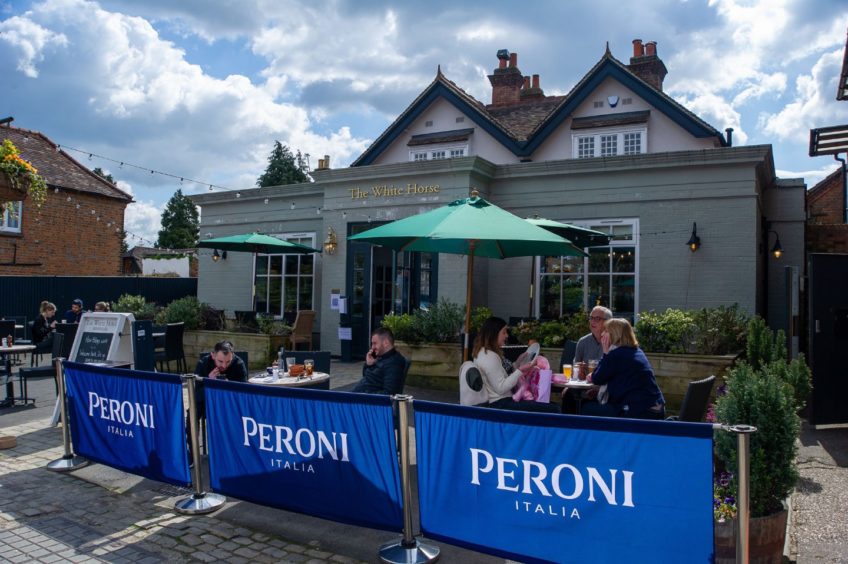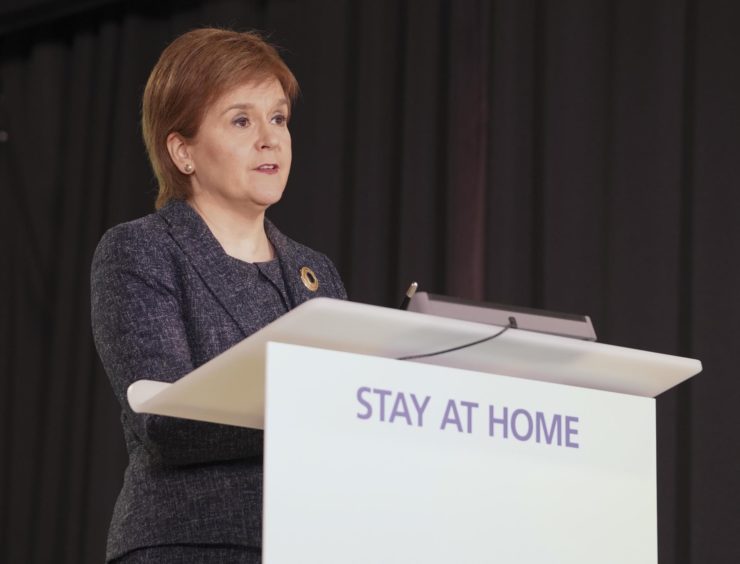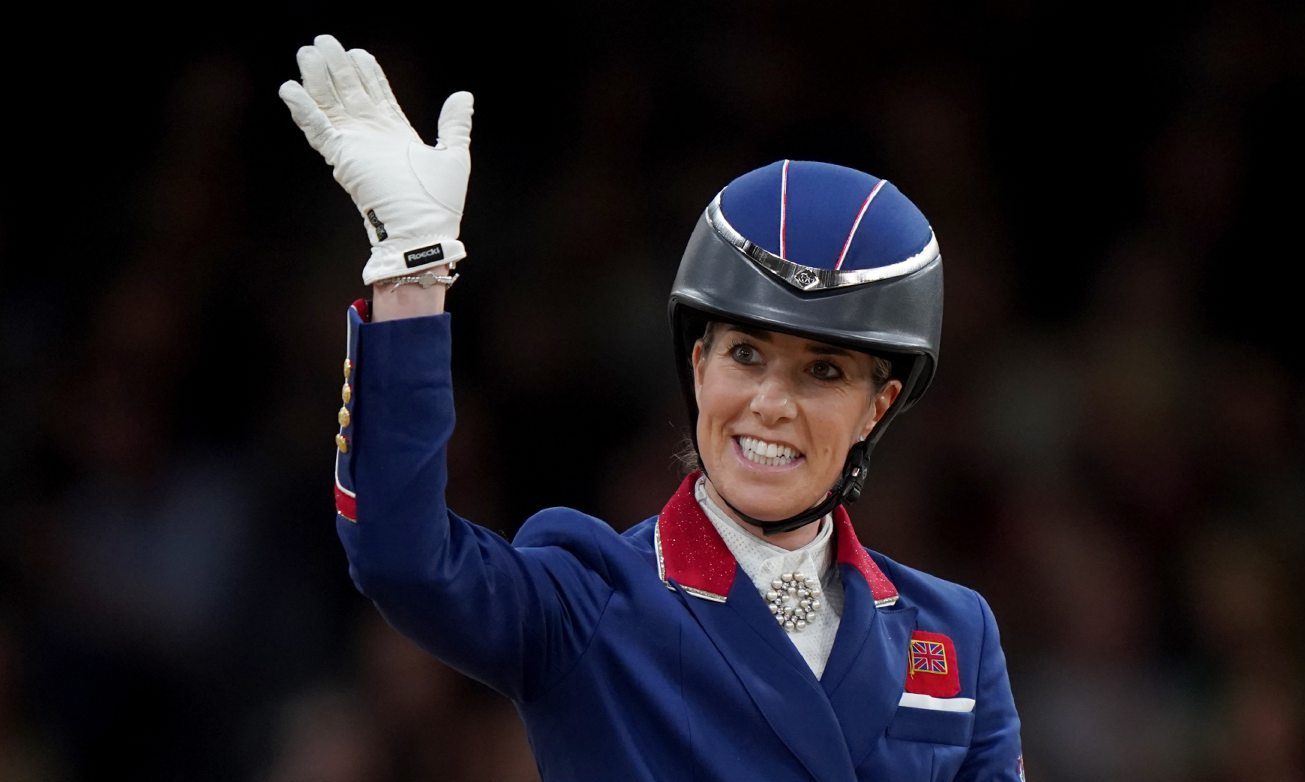As Britain got back to business on Monday, the papers and television featured happy people having their first pint in four months or queuing outside shops as non-essential retailers opened their doors again.
In England, some beer gardens saw customers at dawn; in Wales the pubs haven’t opened yet but the borders have; and even in Northern Ireland, bars are allowed to sell take-away beers.
April 12 heralded the biggest easing to date of lockdown restrictions across much of the UK, with the freed population likening the mood to a New Year’s Eve party (with the weather to match in parts of the country).
Scotland, however, remains resolutely shut. Although our hairdressers opened a week ago and churches went to court so they could welcome back worshippers, Scots have been denied anything like a return to normal life.
There was an expectation yesterday that Nicola Sturgeon was about to announce an early relaxation in the rules, but all this amounted to was permission to cross council boundaries and meet in slightly larger groups, outdoors.
We still have to wait until April 26 for the concessions currently being enjoyed south of the border to be bestowed on us. Why?
Even when vast swathes of the country were practically clear of the disease last autumn and she could have provided businesses with a much-needed boost by allowing them to trade, she kept on the clamps
Scotland had 40 Covid cases per 100,000 in the past seven days, well below the World Health Organisation’s thresholds for lifting lockdown and lower than much of England. Nationwide, there have been fewer deaths, from any cause, than usual for this time of year.
Boris Johnson’s government has been criticised for an over cautious approach to unlocking the country. But throughout the coronavirus crisis, Sturgeon has sought to steer a separate path from Westminster, paying less attention to rates of community transmission in Scotland than to the politics of Covid control.
So even when vast swathes of the country were practically clear of the disease last autumn and she could have provided businesses with a much-needed boost by allowing them to trade, she kept on the clamps.
Little debate as consequences emerge
Since she went more or less unchallenged by her political opponents, there has been very little debate in Scotland about the fallout from her zealous Covid strategy.
The worst consequences of this are now beginning to emerge, most alarmingly in the NHS, where there is a five-year backlog of postponed operations and hospitals are still only working at two thirds capacity.
In England there will be the inevitable inquiry into the handling of the pandemic, and perhaps in Scotland too, in due course, though we know from recent experience that the SNP can do no wrong and will never be held to account.
Our beleaguered hoteliers and pub owners – often the only voice of dissent against Sturgeon’s Covid diktats in the past year – have this week called on the government to bring Scotland into line with England.
They argue that waiting a further two weeks before lifting the lockdown will cost Scotland’s economy £20 million, on top of the billions already lost over the past 12 months.
And they have demanded to see the scientific evidence behind the First Minister’s decision to delay reopening Scotland.
‘We’re going to be seeing people jump the border’
Stephen Montgomery, who owns the Townhead Hotel in Lockerbie and is a spokesman for the Scottish Hospitality Group, told BBC Radio’s Good Morning Scotland on Monday that people will go to pubs in England if they can’t get served in Scotland, even though such travel is, of course, banned.
‘We’re going to be seeing people jump the border,’ he said. ‘Scotland’s always been behind in the way we’ve been operating for the last year. So it’s going to be no different this time. We are at a disadvantage.’
Publicans have also questioned the ludicrous move to prohibit the sale of alcohol indoors when they open up again.
Hotels and B&Bs are desperate for visitors as well and many are in remote regions of Scotland that are completely dependent on tourism.
But the message that Scotland is closed, long after other picturesque parts of Britain have reopened, may seriously hamper the recovery of this sector too.
Voters who fall for this ploy should bear one thing in mind; a Nationalist victory will lead to renewed clamour for independence and growing momentum for another referendum
Is Sturgeon hoping that releasing us from house arrest just before the May 6 election will gladden our hearts so that we are more likely to overlook the ruinous impact of her policies and vote for her?
There can be no other reasonable explanation. Voters who fall for this ploy should just bear one thing in mind; a Nationalist victory will lead to renewed clamour for independence and growing momentum for another referendum.
But Sturgeon’s licence to trifle with the Scottish economy is conditional upon London largesse. Scotland can keep shutdown for longer than England if it can rely on Treasury funding – such as Rishi Sunak’s furlough scheme or £1.2 billion extra Covid relief – to bail it out.
Once that safety net is removed, politics will cease to be a game played to suit the separatists’ partisan agenda.






